The post From fear to freedom: 12 years confined in an orphanage in Nepal appeared first on Hope and Homes for Children.
]]>“If one of us made a mistake, all of us would get beaten – with pipes, sticks and bamboo strips. In my heart, all I felt was fear.”
These are the words of Moti, a young man who spent the majority of his childhood confined inside an orphanage. “They took me at such a young age,” Moti, now 20, says, sitting outside his family home in Nepal. “I stayed there for 12 years. I didn’t even know I had a family.”
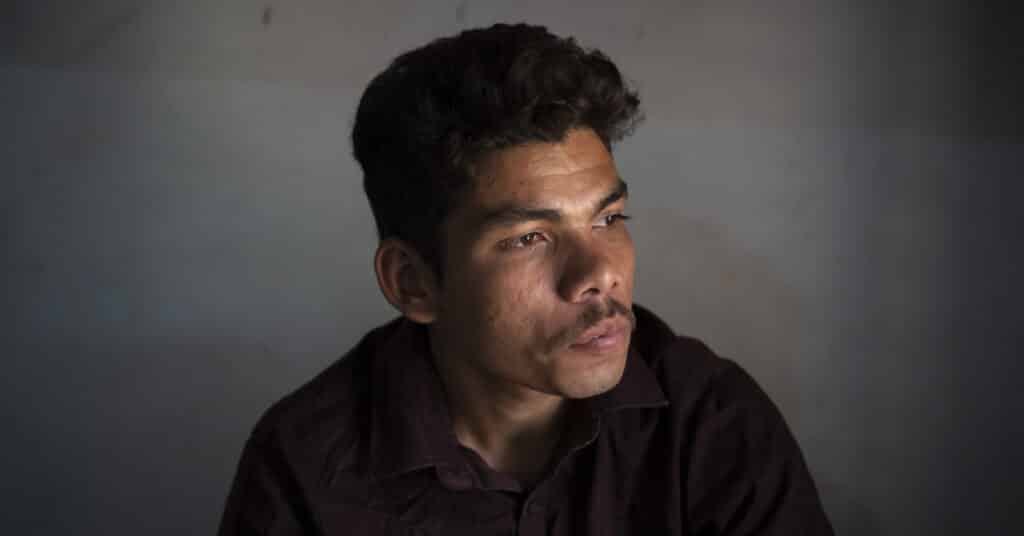
Moti’s dad died young, leaving his mum, Kumari*, scrambling to raise her six children alone. Grieving her husband and unable to pay for Moti’s school fees, a local priest advised her to send him to an orphanage. Believing it was her only chance to get an education for her youngest child, Kumari agreed. Moti was only four.
“I felt bad living there,” Moti explains. “The orphanage was meant to educate, but that’s not what it did. I suffered.” Instead of receiving the care his mum was promised, Moti was exposed to violence, abuse and neglect for twelve long years. Now, he’s sharing his story to shed light on the realities of orphanages, and the importance of family for every child around the world.
Behind closed doors
“We were beaten all the time,” Moti remembers. “They didn’t feed us well either. We still felt hungry after every meal.” Moti grew up alongside 300 other children. He received little care, love, or freedom. Even sleeping was controlled.
“I slept in a dorm with 30 other children,” he explains. “Three rows of ten, like sardines, forced to sleep completely straight. The slightest movement and we were beaten. Was that them trying to educate us? We couldn’t even sleep how we wanted to.”
Right now, over 10,000 children are growing up in orphanages in Nepal. Like Moti, 85% of them have living families, but were sent to an orphanage under the promise of receiving an education. In many cases, that promise was a lie.
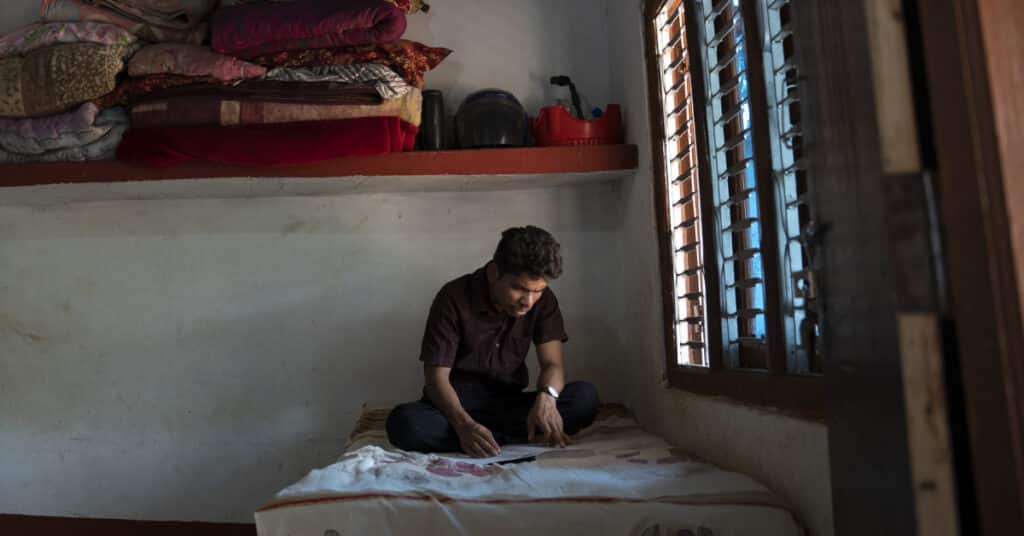
“We had to wake up at 4 a.m. for prayers and chores, every day. The orphanage was Christian, so Hindu children were forced to convert,” he remembers.
“We never got to go outside. We felt like the world was only as big as the orphanage.”
Moti’s mum, Kumari, just wanted the best for her son. What she didn’t know was that orphanages don’t help children. They harm them. Behind closed doors, children like Moti suffer.
Reuniting Moti with his family
In 2018, our local partners The Himalayan Innovative Society (THIS) and Forget Me Not (FMN) started working inside Moti’s orphanage.
In partnership with the Nepali government, they began the long process of closing the orphanage by reuniting the children inside with their families. Sajit Sapkota, a Reintegration Officer with THIS, began by tracing Moti’s family, counselling his mum, Kumari, and ensuring she had everything she needed to bring Moti home. Once she was ready, Sajit began preparing Moti.
“There was talk of everyone in the orphanage finally being allowed to go home,” Moti remembers. “They asked me if I wanted to leave. Delighted, I said yes.”
With help from Sajit, Moti was soon ready. After twelve long years, he left the orphanage and went home to his mum.
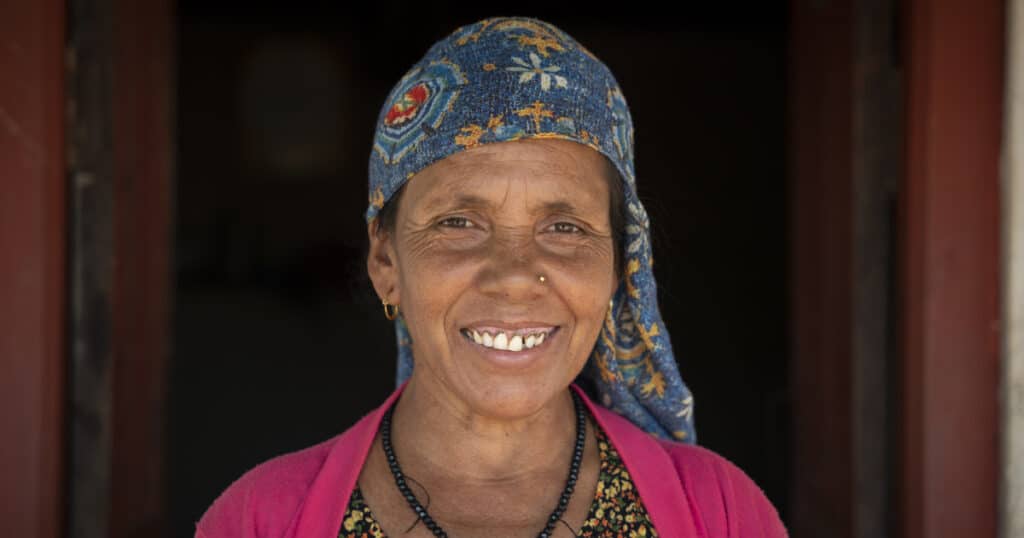
The world outside the orphanage
Four years later, Moti has settled in to life back at home. But after twelve years effectively confined to a prison, adjusting to life outside the orphanage was still very challenging for him, which is why our team’s ongoing support is so crucial.
“When I left the orphanage for the first time, I felt very strange. I couldn’t make sense of where I was or the world around me. So, I kept silent. Sometimes, I thought about dropping out of school.”
But Sajit stuck by Moti’s side every step of the way. He visited regularly, offering counselling and financial support to pay for school fees, books and one-to-one tuition to help him finish school and pass his final exams.
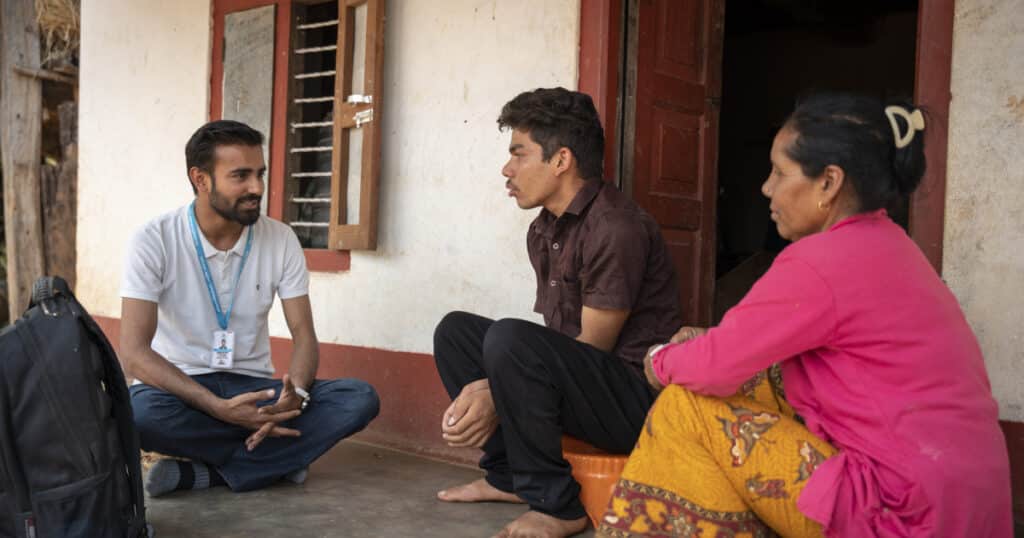
“Sajit encouraged me to study and move ahead in life,” says Moti. “He goes to the shops with me, gets the tailor to take my measurements, and gets me school supplies to last the year. He’s helped me in ways a family usually supports a person.”
“Gradually, after a year passed, I started talking to my family, friends and teachers and got along well with them. Now, if I see a new person, I want to talk to them and be their friend. And if any of my friends are struggling, I help them.”
Now, Moti’s dream is to finish school, learn to drive, and move abroad. He’s settling in, adapting to life at home, and learning to love his new-found freedom.
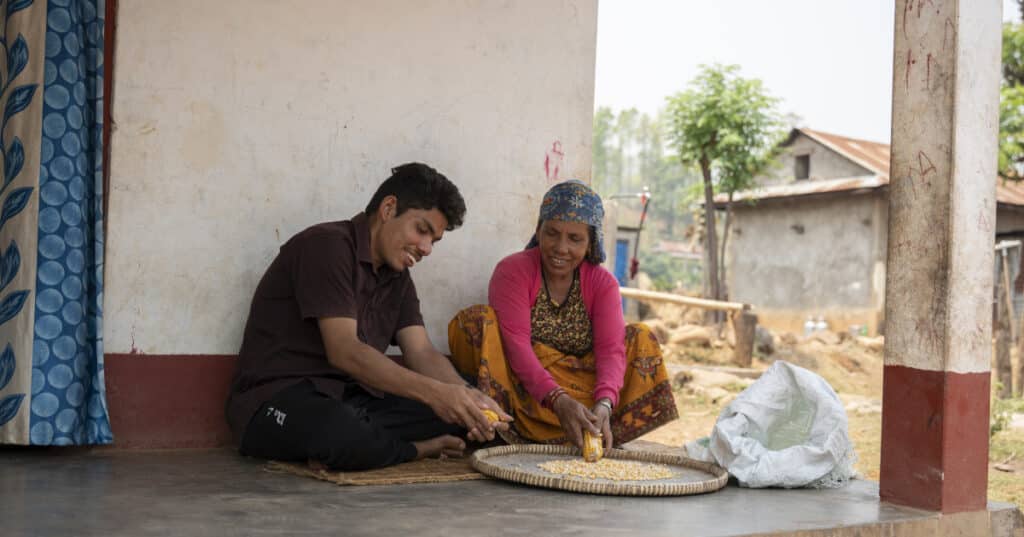
“To me, family means to live together, to love each other, to share our sorrows, and to belong,” he says.
“Because we got beaten a lot in the orphanage, I had a lot of fear. Thanks to the love I’ve received from everyone here at home, my fear has gradually gone away.”
“Here, with my own bed, I am free. I can move and sleep on my own free will. And nobody can say anything about it.”
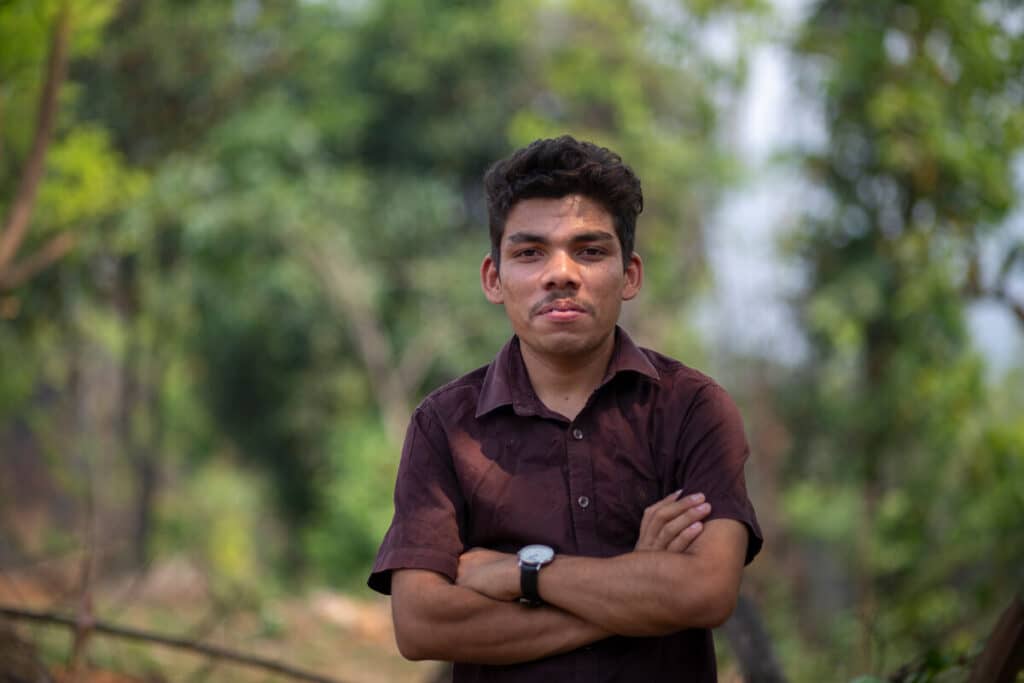
Moti is just one of hundreds of children in Nepal who we’ve helped reunite with their families. But there are still 10,000 more. We urgently need your help bringing them home. To prevent other children from suffering the agonising hardship Moti endured for twelve years, please donate what you can today, and help keep children #SafeFromHarm and free from fear. Thank you.
The post From fear to freedom: 12 years confined in an orphanage in Nepal appeared first on Hope and Homes for Children.
]]>The post “I don’t like the orphanage. Please let me come home” – Sunil’s journey back to family appeared first on Hope and Homes for Children.
]]>These are the words of Sunil*, a young boy from Nepal who was sent to an orphanage. For two long years, Sunil was homesick, lonely and afraid – until we supported his parents to bring him back where he belongs. Back to Family.
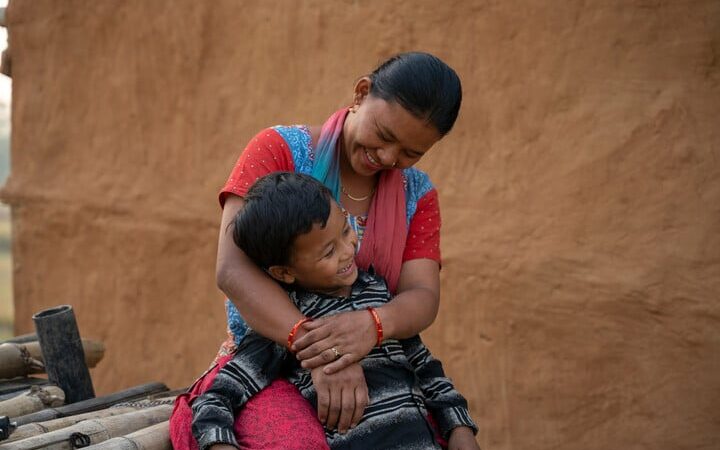
Lata never wanted to say goodbye to Sunil. All she wanted was to get her only son an education. But when she sought help, she was persuaded to place him in an orphanage. Sunil was only four.
“My heart ached thinking about him, what he was eating, or whether he was eating at all,” Lata told me. “I’d tell myself that he’s still very young, that keeping him in the orphanage was for the best.”
But what Lata didn’t know is that orphanages don’t help children, they harm them. As the one thing children need most is what no orphanage provides. A loving family. Sunil spent the next two years desperately missing his mum, dad and little sister, Shika*.
Will you help get millions of separated children like Sunil #BackToFamily? Donate today.
The truth about orphanages in Nepal
As a Reintegration Officer for Hope and Homes for Children’s local partners in Nepal, it’s my job to reunite children like Sunil with their families.
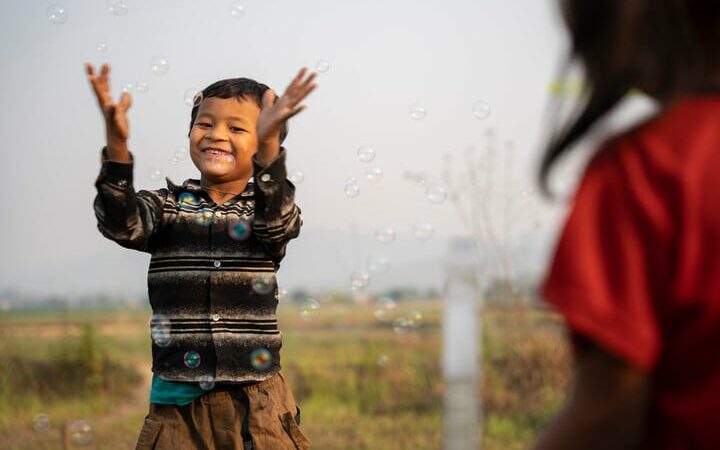
Right now, there are over 10,000 children living in 400 orphanages across the country. The sad truth is that 85% of them have families that could take care of them. But instead of receiving support, parents like Lata feel pressured to send their children away. And children like Sunil suffer.
Why Sunil was sent to an orphanage
Sunil’s family is part of the indigenous Chepang community – one of the most marginalised groups in Nepal. Before being pressured to come out of the jungle, the Chepang were self-sufficient, hunting and foraging to survive. Now, with limited income and opportunities, 90% of Chepang families live below the poverty line – earning on average just £39 per person, per year.
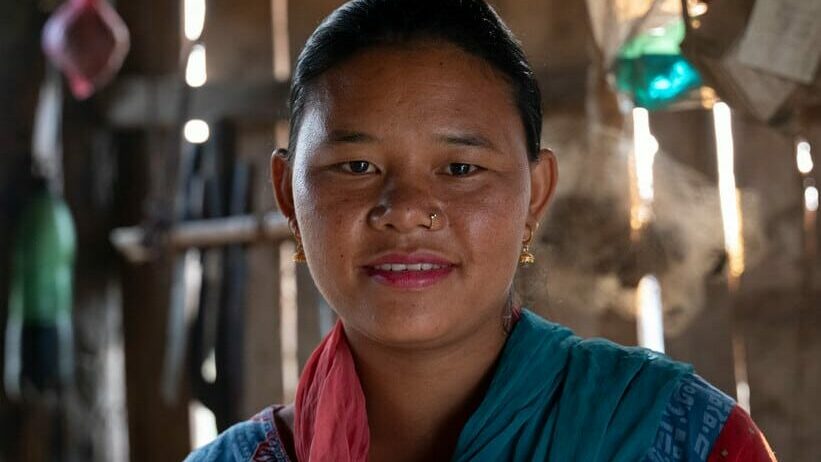
Struggling to pay for basics like food and school fees, many Chepang parents worry about how they’ll raise their children. As a result, they buckle under pressure from orphanages to send their children away. Just like Lata did.
“Whenever I’d see him, Sunil used to beg me to take him home,” Lata told me. “He’d cry whenever I’d visit. I felt like crying too.”
Many Chepang children like Sunil are sent to orphanages under the guise of getting an education. But instead, they’re trafficked into orphanages tourist districts – often to help elicit donations from well-meaning, but sadly mistaken tourists.
What Sunil needed more than anything was to go back to family. And that’s exactly what my team set out to find him.
Bringing Sunil back to family
In partnership with the local government, my team started to work on bringing the children in Sunil’s orphanage back to family.

After we traced Lata and Hari, Sunil’s dad, I worked with them to find out what they needed to bring Sunil home. Education was their top priority, so we ensured they could afford school supplies for Sunil, including uniform, books and stationery and a daily lunch box for school.
Soon, Lata reclaimed her confidence. “My child needs to know who I am,” she told me. “I need to feel his love, and he needs to feel mine.”
At last, after two long years, they felt ready to bring Sunil back to family.
Home at last
The day Sunil returned was an unforgettable day for the whole family. At last, they were reunited.
“We celebrated by playing music and dancing to my favourite song,” Sunil remembers. “The thing I love most about my mum is when she sings. And I love when my dad plays with me.”

“Things used to be difficult,” Lata told me. “But it’s been easier with all the help we’ve received. I’m very happy. I want to thank the ones who’ve supported us. May they be blessed for looking after the little ones.”
“I’m just so happy that my son has come home,” said Hari. “Today, we play together, eat together and have our ‘us’ time. Thank you so much for making this happen.”
When I see Sunil with his family smiling and being happy, I always imagine this scene of a little baby sparrow who has finally found his way home back to his nest with his mother. It makes me so emotional to imagine this baby sparrow returning back home.

Will you help millions of children like Sunil get #BackToFamily? Donate today.
Written by Rohan Bagale, Reintegration Officer with THIS
All Hope and Homes for Children’s work in Nepal is done through supporting two local partners – The Himalayan Innovative Society (THIS) and Forget Me Not (FMN). The National Child Rights Council has acknowledged our collective expertise and efforts and now sees FMN and THIS as leading organisations on childcare reform.
*Names changed to protect identity. | All photos by Kishor Sharma / Hope and Homes for Children
The post “I don’t like the orphanage. Please let me come home” – Sunil’s journey back to family appeared first on Hope and Homes for Children.
]]>The post Nepal Earthquake appeared first on Hope and Homes for Children.
]]>Thankfully, we’re glad to report that all the staff from our local partners Forget Me Not Nepal (FMN) and The Himalayan Innovative Society (THIS), based in Kathmandu and Western Nepal are safe. We’re also thankful to share that all the children and families we support – including those in Karnali Province, the area affected – are also safe. However, some houses where the children and families live are damaged.
We know that in emergencies, the risk of children ending up in orphanages always increases. As a result of Friday’s deadly earthquake, some children will tragically be grieving one or both parents. Destruction of homes and livelihoods means many mothers and fathers – some newly widowed – will be pushed deeper into poverty and increasingly worried about how to put food on the table. When families struggle to provide for their children, orphanages are mistakenly often seen as the solution, due to widespread misinformation that orphanages offer better alternative care for children.
Increased pressure on families
These sets of circumstances increase the pressure on struggling parents to send their children away to orphanages. They also increase the likelihood that children without parents, families or trusted adults to protect them will be exploited and trafficked into orphanages. Often this is so that the children can help elicit donations from well-meaning, but misinformed, tourists and donors – as we saw following the two devastating earthquakes in April and May 2015.
We cannot let this happen.
Every child has the right to grow up in a safe loving family, not shut away in orphanages.
What we’re doing in Nepal
With our support, our local partners in Nepal work to prevent children being wrongfully separated from their families and sent to orphanages, by
- working with the government to closely monitor and close orphanages
- raising awareness and sharing the truth about the harms of institutions
- supporting families at risk of separation
Now, with vulnerable children at risk following the earthquake, our work is more important than ever.
Winter Appeal We need your help
By giving to Winter Appeal you can help protect children and families suffering after the Nepal Earthquake and across our programmes
Crisis response
In particular, our partners will be responding to the earthquake in three areas: humanitarian support, counselling support, and prevention:
Humanitarian support: Our partners will now be working closely with the local authorities in Karnali Province to ensure that vulnerable children and families are provided with food, tents, clothes, blankets, and counseling services to calm their fears and give them hope.
Counselling support: Our team will be following up with families to provide in-person and remote support and guidance – recognising that the impact of the earthquake is both immediate but also that there are now higher long-term risks of traffickers luring families to send their children to orphanages in cities.
Preventing institutionalisation and child trafficking: Our Reintegration team are in close communication with Karnali provincial and local authorities in the earthquake-affected districts – Jajarkot and Rukkum – about the need to prevent institutionalisation and alert them about the risk of children being trafficked into institutions.
The post Nepal Earthquake appeared first on Hope and Homes for Children.
]]>The post Earthquake, War, Crisis: protecting the most vulnerable children during emergencies appeared first on Hope and Homes for Children.
]]>The current news cycle is overwhelming. Over the past 20 months, we’ve witnessed a humanitarian crisis in Ukraine that shows no sign of abating. Millions of children are suffering the consequences of war. Yemen faces a famine, with unprecedented levels of hunger and one of the highest rates of child malnutrition in the world. In Syria and Turkey, earthquakes have killed over 55,000. Millions more have lost their homes.
Then, shocking scenes from Israel, Gaza and the West Bank have horrified people around the world.
“The killing and maiming of children, abduction of children, attacks on hospitals and schools, and the denial of humanitarian access constitute grave violations of children’s rights”
Adele Khodr, UNICEF Regional Director for the Middle East and North Africa, referencing the situation in the Gaza Strip specifically as “a growing stain on our collective conscience.”
We’ve added our voice to the global community’s calling for an urgent ceasefire by all parties in the conflict in Israel and the Occupied Palestinian Territories, and an immediate and unconditional release of Israeli children taken hostage by Hamas
And now an earthquake in Nepal, where our teams are working with local authorities to support crisis response with food, tents, clothes, blankets, and counselling services to calm their fears and give them hope.
Winter Appeal We need your help
By giving to Winter Appeal you can help protect children and families suffering after the Nepal Earthquake and across our programmes
We can’t work everywhere that’s currently facing a humanitarian crisis. But we do work globally through our advocacy for a better world for all children – free from the harm and safe from the fear they experience daily in orphanages. As part of this, we fight to implement our learning about how emergency preparedness and response should work hand in hand with care reform to keep the most vulnerable children safe.
Emergency Response – what we’ve learned
Thankfully, humanitarian actors are on the ground now, responding as fast as possible to these emergencies. But some disasters are predictable, and to build a truly fair world, we all need to prepare for them. We’ve learned here that disasters and emergencies always hit children particularly hard, and that children deprived of family support and care are especially vulnerable.
Whether it’s because they’re living in orphanages, or have become separated from their families, for example as refugees in the fog of war, without trusted, loving carers to protect and comfort them, unaccompanied children are at greatest risk of physical violence and abuse, psychological trauma, exploitation, and trafficking.
1. Prioritise the most vulnerable
All agencies working to respond to war and natural disasters must prioritise children without families. They’ll need trusted adults to navigate their trauma. They’ll need practical help as they flee their homes and countries in fear for their lives.
2. Build focus on children without families into emergency preparation
Our work in Ukraine has shown us that the needs of children deprived of family care all too often are overlooked in emergencies, while the harm and trauma they suffer is irreversible.
As an international community of responders, we must account for their well-being and whereabouts, reunite them with their families when possible, or welcome them into supporting family environments urgently. And we must be ready with robust emergency preparedness mechanisms, explicitly designed to direct attention to children in alternative care, to limit as far as possible the harm to these children.
3. Don’t rely on orphanages as temporary response
In a crisis, for unaccompanied children and particularly children on the move, orphanages are often seen as a ‘temporary’ solution. While well-intended, they become a long-term, established part of the care system. This locks up resources in buildings, rather than being directed towards keeping families and children together.
4. Prevention is the best cure
Ultimately, the most important thing that we’ve learned is that prevention of family separation and the strengthening of families and communities is the single most effective way of protecting children from experiencing emergency situations alone. We work directly with families and communities, and we continue to advocate for them globally, to ensure access to services in the community, and ensure that families have the financial and psychosocial support they need to keep their children at home. We continue this work so that one day, no child will have to face the horrors of war and disaster without the care of a trusted adult to support, guide and protect them.
Read our full recommendations on disaster resilience and child-centred response
The post Earthquake, War, Crisis: protecting the most vulnerable children during emergencies appeared first on Hope and Homes for Children.
]]>The post Donate to our Christmas Appeal to keep children #SafeFromHarm appeared first on Hope and Homes for Children.
]]>Even worse, 85% of these children aren’t actually orphans. Instead of growing up at home, safe and loved, children are trapped inside orphanages – homesick, lonely and afraid.
This Christmas, we urgently need your support to help reunite children in orphanages with their families. Watch our video and read on below to find out how you can help keep children safe from harm.
How many children are in orphanages in Nepal?
Right now, over 10,000 children are shut away in 400 orphanages across Nepal. Cut off from their family, community, and culture. Most of these children have at least one living parent who they could – and should – be growing up with. But poverty, limited access to education and widespread misconceptions about orphanages cause families to be torn apart.
What happens to children in orphanages?
Tragically, many children in Nepal’s orphanages often experience hunger and beatings, as you’ll hear from Tabita* and Moti* in the film. Many live in constant fear of being scolded and punished. And often they don’t even know that they have living parents.
When Moti shared his story with me earlier this year, it broke my heart. “I was only four when they took me away,” he explained. “I stayed there for 12 years. I didn’t even know I had parents. We got beaten a lot – with pipes, sticks, bamboo strips. In my heart, all I felt was fear.”
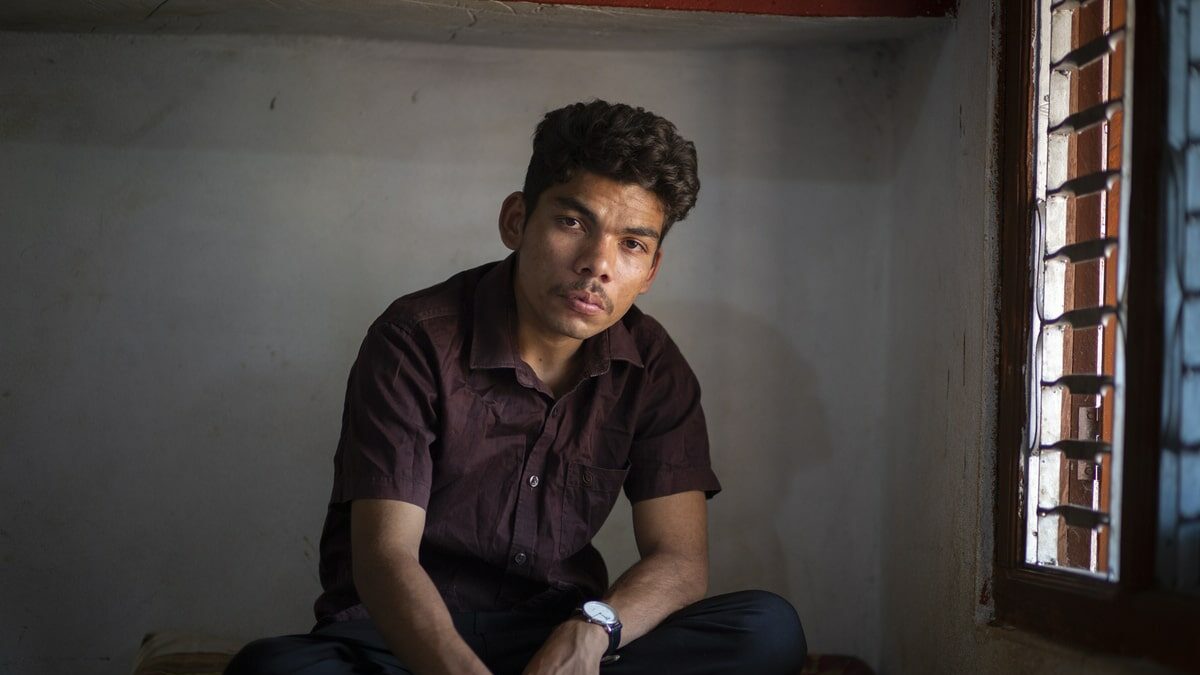
Unaware of these children’s heartbreaking experiences, 70% of people in the UK think orphanages are a good thing. But sadly, they’re mistaken. Even the most well-run orphanages don’t help children; they harm them by denying them their fundamental human right to love, family and belonging.
So why are children left in orphanages?
There are many reasons why children end up in orphanages but three main reasons in Nepal are:
- Poverty. Global inequality exacerbated by skyrocketing global prices means many parents can’t afford basics like food and school supplies. This makes them vulnerable to widespread misconceptions that orphanages can offer their child a better future, by guaranteeing food, shelter and education.
- Lack of access to education. Many parents want to send their children to school to give them the best chance in life. But in poor remote areas where the closest school is still a long walk away and parents can’t afford school fees and books, sending children to orphanages is seen as a good alternative.
- Trafficking. Many orphanages in Nepal operate as businesses with the purpose of making money. Children are often trafficked from poor remote areas into these orphanages – or so-called ‘child care homes’ – to elicit donations from well-meaning but misinformed tourists or donors.
Dambari Maya, below, is one of thousands of parents who’ve been persuaded to give up their precious children.
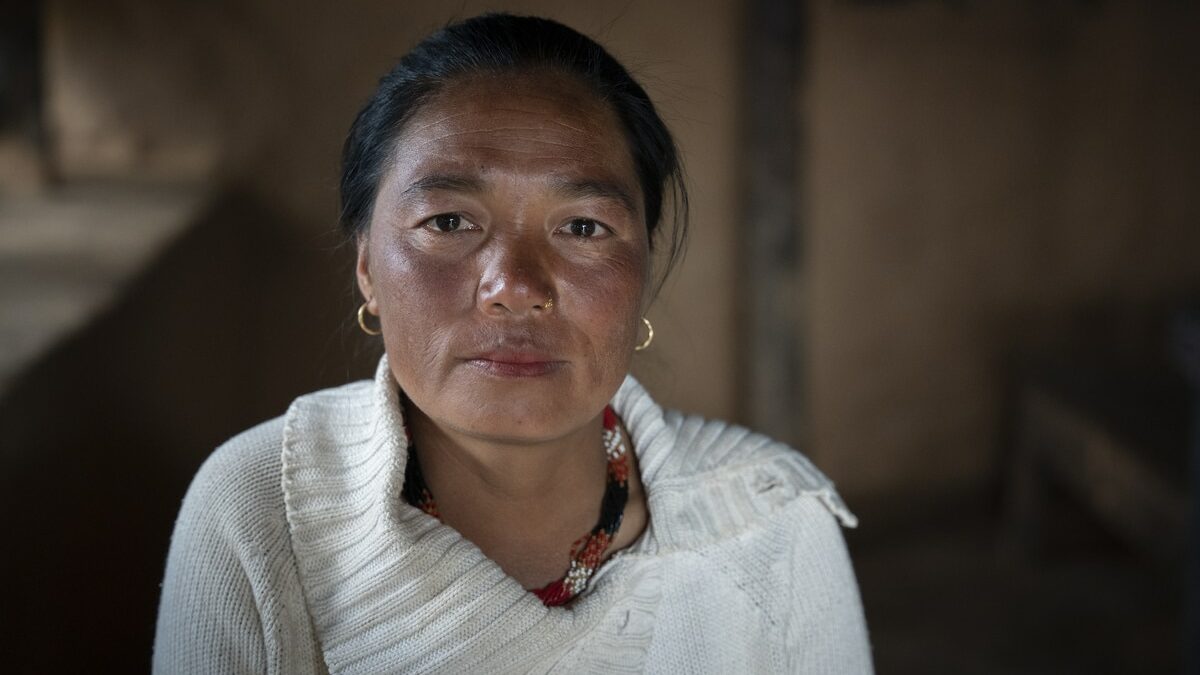
“We didn’t have enough to eat,” she explained to me. “The men who took my children told me they’d educate them and feed them well. I trusted them. But I suffered, and my children suffered too. I didn’t understand then. But now I do. And things have to change.”
With your support, we can make that change happen and reunite children with their families. Children like Sunil.
How we reunited Sunil with his family
Sunil, six, is from the Chepang community – one of the most marginalised indigenous groups in Nepal. Determined to get Sunil the education she never had, his mum, Lata* was persuaded to send him to an orphanage.
“I didn’t want to send him,” Lata said, keen to explain the terrible decision she felt compelled to make. “My heart ached thinking about him. But I would tell myself that taking him back would ruin his future.” Sadly, Sunil suffered for two long years, desperately missing his mother.
When Lata visited him, Sunil would say: “Mummy, I don’t want to go back to the orphanage. I don’t like that place. There are older children there that beat me. Please let me come home.”
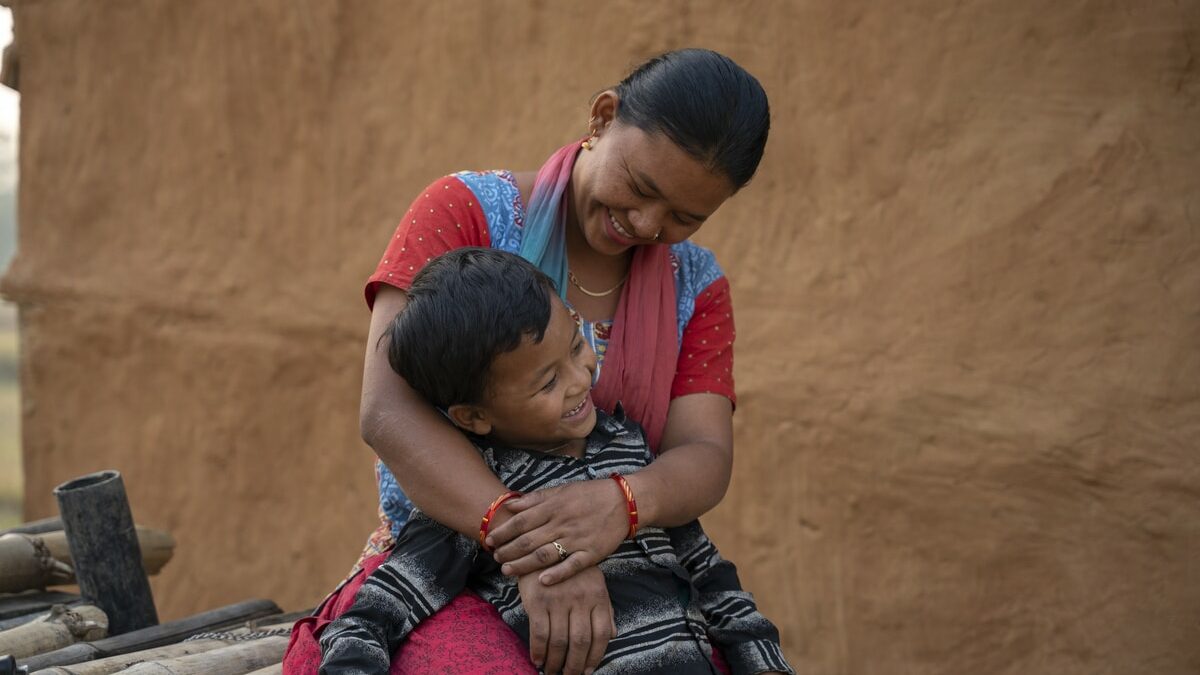
Last year, my colleague Rohan traced Sunil’s parents, counselled them and offered the financial support they needed to bring him back. “Things used to be hard,” Lata told me, “but thanks to the support we’ve received, life is much easier. I am so happy. Now Sunil can sit in my lap and be loved.”
How can I help children in orphanages this Christmas?
Sunil’s just one of 26 Chepang children we’ve reunited with their families from two orphanages in Chitwan District. But there are still 37 children left living there. This Christmas, you can help us keep them safe from harm.
We’ve already traced their parents. But just like Sunil’s parents, with limited opportunities to earn an income, Chepang families need support to put food on the table and afford education.
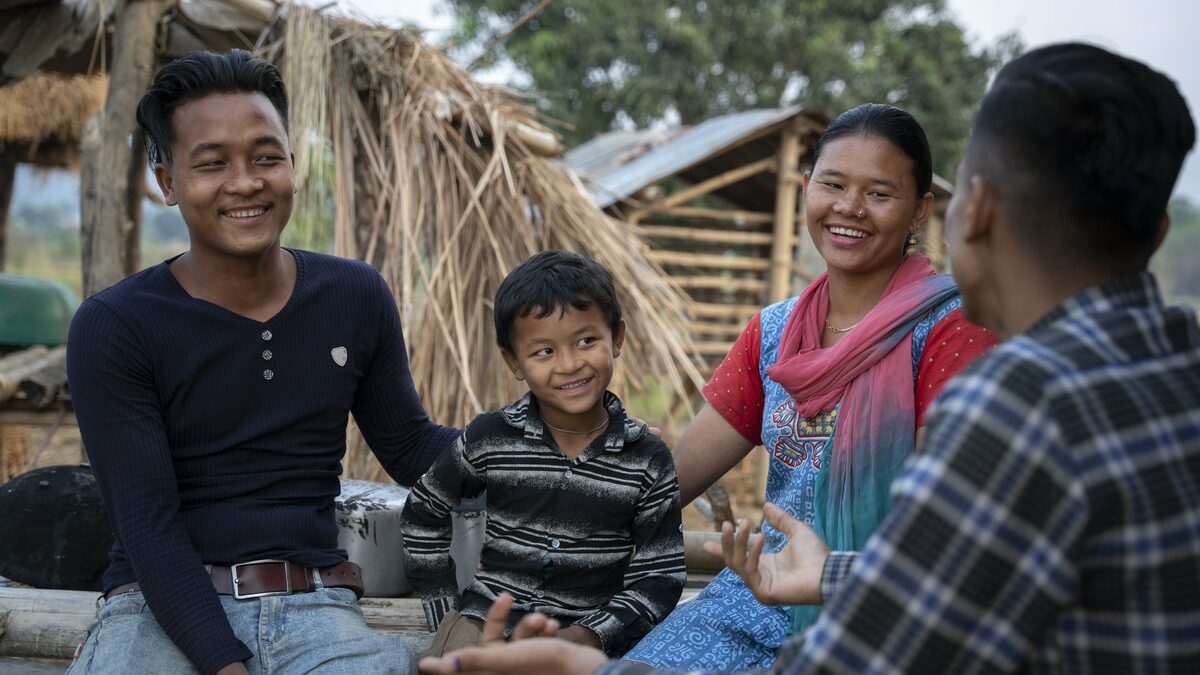
How will my donation help children in orphanages?
Your donation could help parents cover education costs, from books and uniform to school fees and a bike to get to class. For parents like Lata, these basic items could be what enables them to bring their families back together.
Your donation could also help my team prevent more children being sent away, by telling more parents the truth about orphanages, and lobbying for better schools in remote areas so children can study near home.
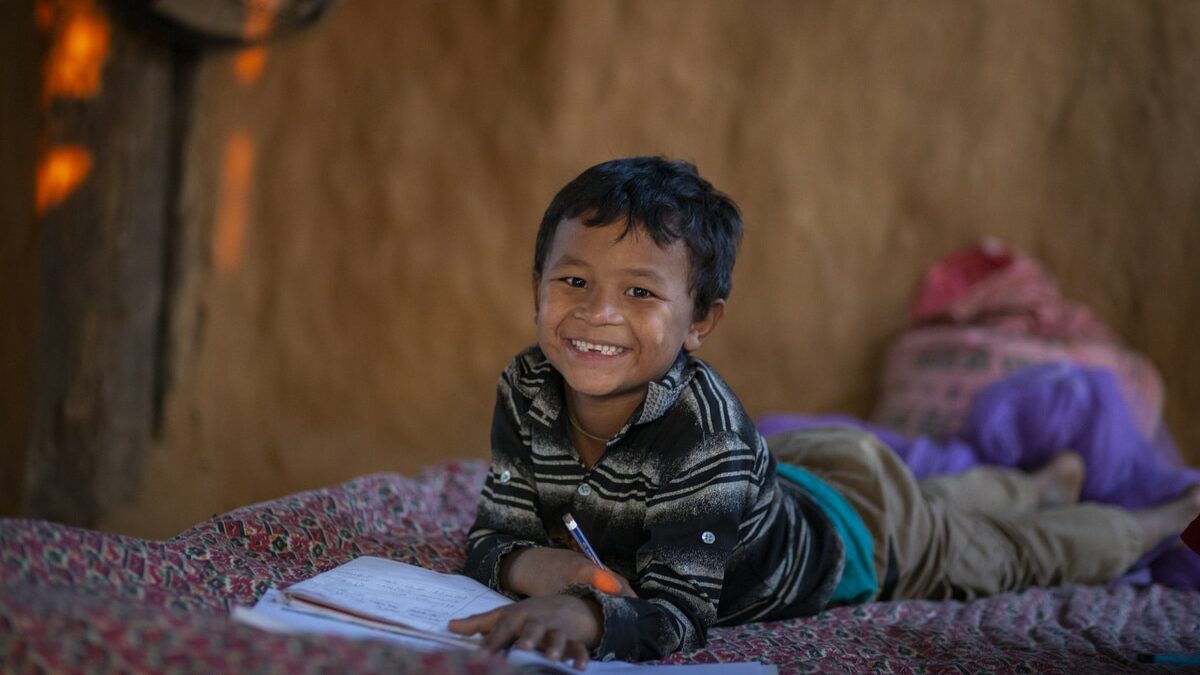
Every day a child is in an orphanage could be another day of hunger, of beatings, of longing for someone to love them.
Please donate to our Christmas appeal to help reunite children with their families and keep them safe from harm, and free from fear.
All Hope and Homes for Children’s work in Nepal is done through supporting our two local partners – The Himalayan Innovative Society (THIS) and Forget Me Not (FMN). The National Child Rights Council has acknowledged our collective expertise and efforts and now sees FMN and THIS as leading organisations on childcare reform in Nepal.
*Names changed to protect identity. | All photos by Kishor Sharma / Hope and Homes for Children
The post Donate to our Christmas Appeal to keep children #SafeFromHarm appeared first on Hope and Homes for Children.
]]>The post “Let’s come together to move mountains” – Anju reflects on International Women’s Day appeared first on Hope and Homes for Children.
]]>Today we hear from Anju Pun, Nepal Country Director for ‘Forget Me Not Australia’, our partner organisation.
Anju is a fierce advocate for childcare reform. She has been working with, and for, the rights of children and care-experienced young people, women, LGBTIQ+ communities, people living with HIV and socially excluded and marginalised communities in Nepal for almost 20 years.
We interviewed Anju about her work with Forget Me Not for International Women’s Day and heard how she is proud of what she is able to achieve with her ‘tiny-mighty dream team’ in Nepal and colleagues globally.
What year did you join Forget Me Not?
Children’s and women’s rights are at the core of what I do every day.
Forget Me Not’s core mission is to support children, and I joined when the organisation in May 2014, when it was on a journey of recognising the importance of keeping children with families, the true harm orphanages cause and the need to transition to family-based care.
Forget Me Not re-designed its approach and strategy in Nepal from 2012 onwards, partnering with The Himalayan Innovative Society (THIS), a pioneer local organisation working on family reintegration and family-based care.
We joined forces with Hope and Homes for Children in 2019, a global leader in care reform. As partners, we have supported the government’s de-institutionalisation plan to reform the care system in Nepal.
Together, we are a passionate team advocating for children. We are strong and impactful, working with local, regional and global organisations and creating powerful new practices and resources.
What does International Women’s Day mean to you, as a leader of an organisation working to ensure every child has a safe family home in Nepal?
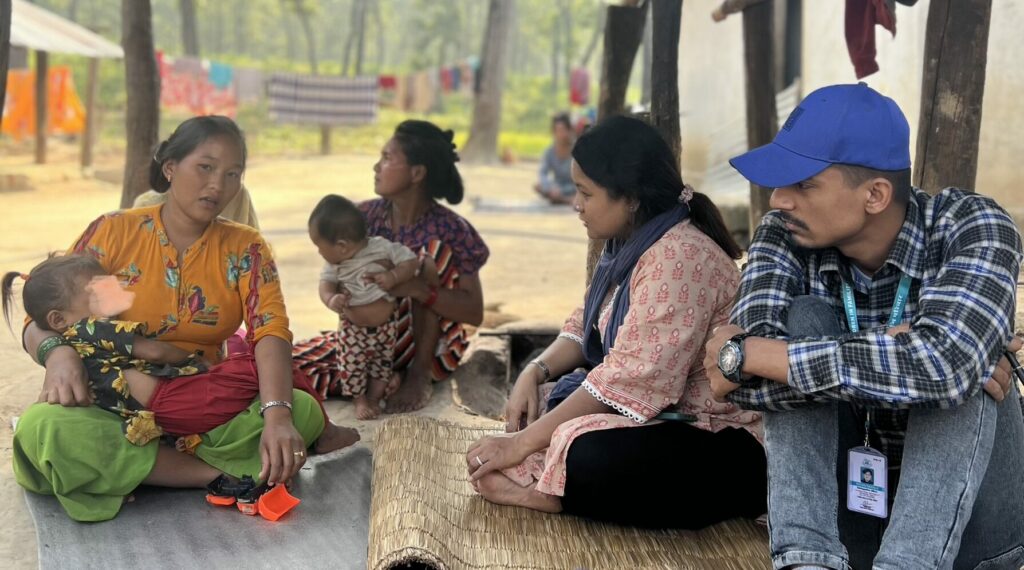
International Women’s Day reminds me of how proud I am being a woman: a mother to a vibrant and confident twelve-year-old girl, and a female Country Director working alongside a passionate team of young people to ensure children are thriving, happy and connected to family, community and opportunity.
I feel privileged to take this opportunity on International Women’s Day to remind everyone that meaningful parenting and community support are essential to raising a healthy, happy child with positive life chances.
As a woman and a mother, my womb was a safe and loving home for my baby for 32 long weeks. I remember how my family, my friends, my co-workers and I, worked as a team to keep myself happy and stress-free to help ensure the safer delivery of the newborn into this world.
As adults, it feels like a long time since our childhood days – good and bad. But we know how it feels to be loved and cared for when you are unwell, to be accepted when the world denies you and to feel protected at home.
COVID-19 shook us all and reminded us what we all want and need during emergencies. We need a place where we belong and feel safe, protected and loved. We need our families.
Children have a right to family, it is every child’s birthright protected by UNCRC, ratified by Nepal in 1990 and protected by the constitution of Nepal 2015 and the Act Relating to Children 2018.
This fundamental human right to family is what I want for every child in Nepal and globally, and I work hard alongside my passionate team to ensure children enjoy their rights.
What is your biggest achievement or proudest moment as a leader since you joined Forget Me Not? How did this make you feel?
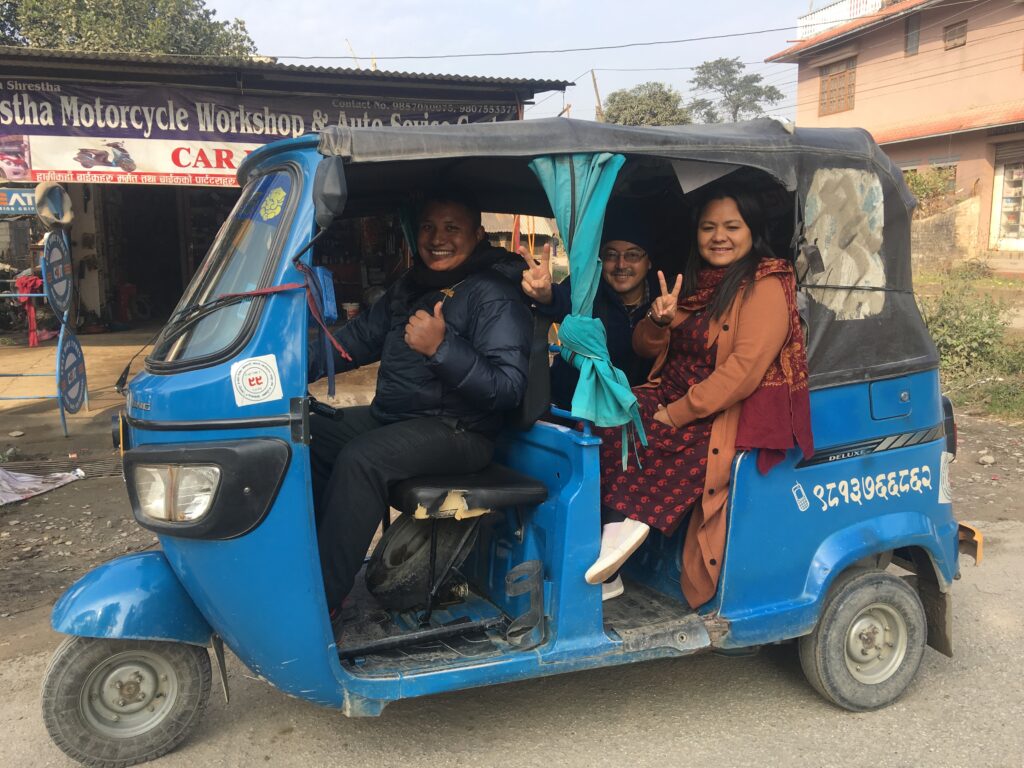
I believe that the culmination of small steps and team efforts leads to bigger change. Every day, we strive to make this world a better place for children.
I felt proud that I had the opportunity to speak in the opening plenary session for UNDGD 2021 – ‘Children’s Right to Alternative Care’, to represent BICON for Asia-Paific. Those seven minutes and the recommendations felt so powerful to me contributing to the global care reform movement.
My proudest moment was to see the birth of Care Experienced Network Nepal (CENN) – Shine Together, co-founded by four young people with lived experience coming together during COVID and using their voices, to demand their rights. They continue to grow and shine in everything they do – from advocating to improve care services, improving mental health and contributing to local, regional and global care reform for children.
I feel proud of being a small part of the crucial and less travelled road of Forget Me Not, which wasn’t romantic at all. Before Forget Me Not made the transition to family-based care, we used to receive a lot more funding.
When we changed our journey, it became hard for us to raise funds to reunify and support the most vulnerable children living in orphanages, despite the fact that over 80% of them have parents, and are often trafficked in the name of better education.
It is a shame that sometimes ‘feel-good human syndrome’ (unskilled and short-term volunteering in orphanages during Nepal tours) and mostly well-intentioned donations from other countries fuels the unnecessary institutionalisation of children, orphanage trafficking, exploitation of children and family separation.
An estimated 90% of orphanages receive funding solely from outside Nepal (Source: Elevate Children Funders Group, Funding Stream Analysis of Residential Care Nepal Country Briefing, 2017).
50% of Nepal’s nearly 30 million population are women. Women’s voices are critical in every decision-making because women understand how the deep-rooted patriarchial system and gender roles have limited women to heavy-duty household chores (mostly unpaid) and sole childcare responsibilities with little support.
We must listen to women with lived experience- their voices can play a vital role in influencing and bringing the necessary change in the childcare system in Nepal.
Women-led development is key everywhere.
How do community services and access to childcare help break the glass ceiling for women in Nepal?
Community services play a vital role as part of preventive measures to stop family separation and end the era of orphanages for children.
All children thrive in loving families, communities, and cultures beneath the vast blue sky that we all love to see.
I remember a single mother who lost her husband and was left with four young children in the hills, living in poverty and desperately seeking help from the authorities. But she was left with traffickers who took her four children to orphanages in Kathmandu. She was separated from her children for 8 years. She said, her children could have stayed safe with her if there has been any kind of access to support in her village for single mothers like her.
Early interventions, like:
- Empowering women and men on equal partnership and parenting roles
- Employment opportunities
- Programmes like adult education
- Scaling up social security schemes for single mothers and children with disabilities
- Child day care and respite centres for children and carers
All take off the loads from women and enable them to negotiate changes in the gender roles that uplift them socially, economically, mentally and spiritually.
What message or words of encouragement do you have for aspiring women wanting to make positive change in the world?
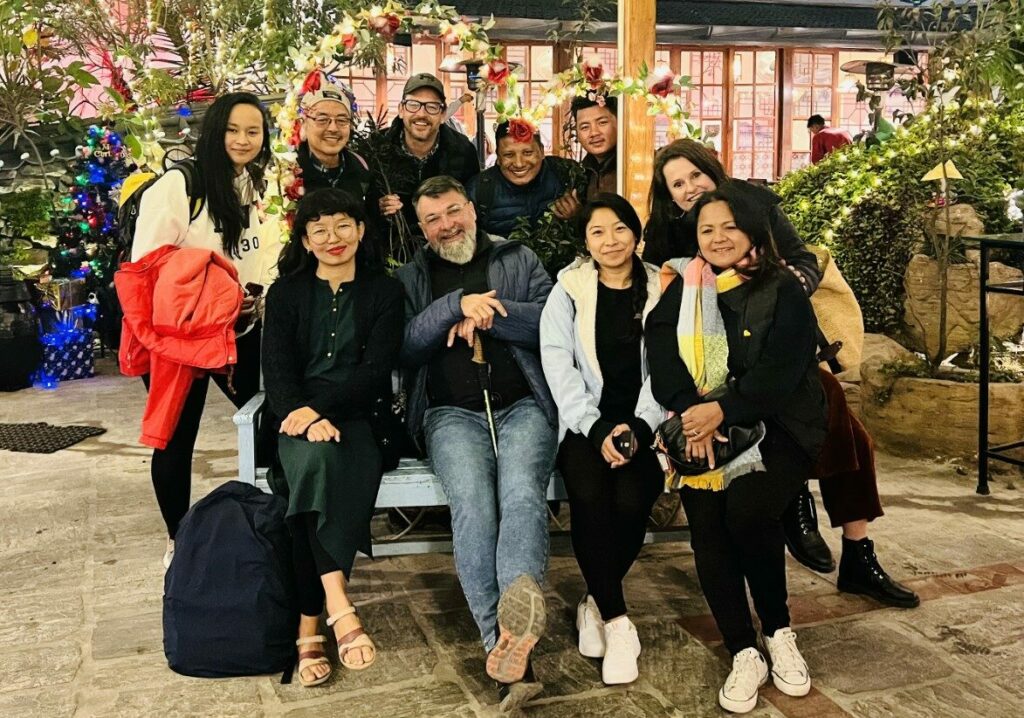
Margaret Mead, an anthropologist had said, ‘Never doubt that a small group of thoughtful, committed citizens can change the world. Indeed it is the only thing that ever has.’
I strongly believe in this – and in Hope for Homes for Children and Forget Me Not’s inspiring stories of change – with shared visions, goals and aligned values upholding children’s best interest in all its work locally and globally.
I quote my then 10-year-old daughter in 2020:
“You don’t need muscles to be strong, you need a heart full of courage.”
Let’s not fail our children. Let’s come together to move mountains and fill the world with love and kindness.
About Anju
Anju Pun is Country Director for Forget Me Not Australia in Nepal. Anju works alongside a passionate team, care-experienced young people and global colleagues to create communities where every child grows up in a safe and loving family.
The post “Let’s come together to move mountains” – Anju reflects on International Women’s Day appeared first on Hope and Homes for Children.
]]>The post Our joint child protection workshop in Nepal appeared first on Hope and Homes for Children.
]]>“We learned to prioritise the wellbeing of children first. The welfare of children is the responsibility of all of us.”
Mr. Khem Prasad Mahato, Deputy Mayor, Madi MunicipalityIn Chitwan last month, care-experienced children and young people and more than forty participants from a number of organisations came together to share their collective wisdom at a group workshop, supported by the Martin James Foundation.
The organisations were:
- Madi Municipality
- Ichchhakamana Rural Municipality
- Bagmati Province
- National Child Rights Council
- The Himalayan Innovative Society
- Forget Me Not
- Hope and Homes for Children
- Alternative Care Working Group
The workshop focused on building a common understanding of child protection in Nepal, and creating a values-aligned action plan for care reform.
We also covered an overview of family and community-based alternative care for children and the current foster care provisions in Nepal, and discussed resource allocation for alternative care services.
What was discussed?
At the workshop, the National Child Rights Council explained their current process for and future plans to develop and invest in family and community-based alternative care services rather than using institutions like orphanages.
“When a child is safe in family, when their academic performance improves, when the environment inside their home is thriving, that is the true sign of development.”
Ms. Namuna Bhusal, Child Protection Manager, National Child Right Council
Participants also discussed Nepal’s national and international child rights commitments (UNCRC, Children’s Act 2018 & Implementation Guidelines) and the National Child Rights Council plan to appoint Child Welfare Officers in all 753 municipalties by the end of the current Nepali fiscal year.
“When municipalities merge, then a Province is born. Therefore, municipality is supreme in the decision making in all aspects of safeguarding and child protection.”
Mr. Gopal Prasad Kandel, Head of Social Department, Bagmati Province
Together, we considered the root causes of family separation, why children may be in need of special protection, and alternative care options for children, including kinship care, foster care, supervised individual living and residential care.
“When a child is safe in family, when their academic performance improves, when the environment inside their home is thriving, that is the true sign of development.”
Ms. Namuna Bhusal, Child Protection Manager, National Child Right Council
After the workshop, we all had a deeper understanding of the Principles of Necessity and Suitability (the fundamental principles of alternative care), the concept of foster care,the roles of stakeholders and the responsibilities of local governments and national and provincial child rights committees councils to drive for reform.
“Family is the base for the holistic development of children. The concept of Foster Care is to provide a family to a guardian-less child.”
Mr. Kapil Aryal, Legal expert
Social security schemes were discussed as one strategy to strengthen families, prevent the institutionalisation of children, and cultivate child-friendly municipalities.
Our joint 10 Point Participant Pledge
We made a 10 Point Participant Pledge following the workshop, to ensure we had a clear plan of action to move forward with in the future. This was:
- Pilot and promote family and community-based alternative care in the two municipalities.
- Understand and implement existing laws and policies of Nepal – Children’s Act 2018 and implementation guidelines – to protect and safeguard children’s rights.
- Listen to care experiences from children and young people in order to make better decisions for the most vulnerable children in our communities.
- Prioritise the transition of two municipality-led institutions and focus on the reintegration of remaining children into families and alternative care where possible.
- Establish Foster Care Advisory Committee.
- Update National Child Rights Council website to include detailed information about children’s homes in Nepal to inform local level planning, decision-making and resource allocations by municipalities.
- Increase the number of child/youth members of municipality Child Rights Committees.
- Fast track municipality work plan development and appoint Child Welfare Officers.
- Improve case management and individual care plans (including children’s socialisation plan) of children in care.
- Reflect and share foster care best practices.
“This has been an opportunity to learn and improve ourselves. There are a lot of things that has to be done legally and today you have shown us that the legal way is the right way.”
Ms. Maya Silwal, Vice President, Ichchhakamana Rural Municipality
We would like to say thank you to all the participants at the workshop for their input and commitment. We look forward to working together to drive for care reform in Nepal.
This workshop was part of the Developing a Model of Community-Owned Foster Care in Nepal project, a partnership between Forget Me Not, Hope and Homes for Children, The Himalayan Innovative Society, and the Martin James Foundation.
The post Our joint child protection workshop in Nepal appeared first on Hope and Homes for Children.
]]>The post On the Frontline: News from our Teams appeared first on Hope and Homes for Children.
]]>Richard Munyaneza, Communications and Advocacy Coordinator, Hope and Homes for Children, Rwanda.
When the pandemic started, everyone was afraid. One of our colleagues said, “There were families whose cases were about to be closed but due to COVID, have lost their economic status, and now they are kept under Hope and Homes for Children regular support.
Adapting to new ways of working whilst maintaining the quality of care needed by those we serve during COVID hasn’t always been easy. However, there have been some positive outcomes to this unpredictable pandemic.
No longer able to physically visit families, we intensified our phone calls and engaged actively in community structures, for example Friends of families, Community Health workers and the National Council for Persons with Disabilities committees. This turned out to be an effective way to carry out community monitoring and support the families under our care.
Before COVID, we had to obtain medication for families and children with disabilities and be the point of access for this. Now, due to COVID, we’ve been able to link families with medical facilities for them to access necessary medication directly.
The pandemic also added another layer of credibility to our work in Rwanda. Some families were very surprised to see us on the frontline continuing to support families, even during the worst lockdowns. One parent said:
“I thought that you were going to stop supporting us because of COVID. But seeing you continuing to call on us, provide food, and care for us, strengthened us.”
Even though COVID was very hard for everyone, it’s shown how we can be resilient as an organisation: adapting to the measures put into place to reduce the spread of COVID whilst effectively continuing to implement activities and services to vulnerable families and children.
India
Subhadeep Adhikary, Program Manager – Child Protection, Child in Need Institute (CINI), our partner in India.
As of 20th April 2022, official figures from the Indian Government and World Health Organisation (WHO), show India has the second-highest number of confirmed COVID cases in the world (after the USA) with 43,047,594 reported cases of infection and the third-highest number of COVID deaths (after the USA and Brazil) at 522,006 deaths. The impact on communities, families and children, many of whom were already extremely vulnerable before the pandemic started, has been significant. In our project areas in Jharkhand, we have seen many families plummet further into poverty, children’s physical and mental health negatively affected and an increased risk of children being trafficked and forced into child labour.
Many of our activities with the community were put on hold due to a government directive that restricted face-to-face meetings, community gatherings and supporting child care institutions in their transition. This meant we had to be more innovative in our approach to ensure we could continue supporting the community. We made full use of technology to provide remote support, health information, counselling, and monitoring through Whatsapp groups and other forms of mobile communication. Through our community workers we were able to keep linking families and children to necessary Government support services including health centres, sponsorship schemes and food programs.
We developed a COVID mobile ‘app’ which was rolled-out to all frontline workers in our project areas to identify and register children who were vulnerable to separation either due to losing a parent or falling into a desperate situation. Using this ‘app’ we were able to keep 60 children – who would otherwise have been exposed to trafficking, being institutionalised, or both – safe with a parent or caregiver.
As we emerge from the pandemic we will build on the innovations it has born to strengthen our work in communities.
Nepal
Anju Pun, Country Director, Forget Me Not, our partner in Nepal
On 31 March 2022 Nepal’s COVID count reached 978,4261 . The heavy rains in mid-October in addition to the pandemic impacted the lives of many with job losses and increase in food and fuel prices. To make things worse there is a growing fear of shortages in the coming months. Despite the challenges, we continued to support government’s deinstitutionalisation efforts and provided our support to the most vulnerable and marginalised children and families.
In January, we saw rising COVID cases. This variant caught most of our team members and our children in transitional care. Our 24 team members, 17 children under case management, and 1 parent of reunified children were infected with the Omicron variant. Luckily, everyone has fully recovered and is back to their normal life.
With Hope and Homes for Children’s support, we’re currently managing 74 cases of reunited children living in 16 districts with their families or in familybased alternative care. During the last 6 months (Oct 2021 – Mar 2022), our reintegration team made 102 in-person family monitoring and follow up visits; provided food support to 38 children and their families; made 420 remote phone calls; and provided education support to 52 children to ensure their well-being and safety.
We can see the resilience of children through the eyes of biological sisters Susheli (12) and Sabita (10). Every evening after school, the two light up their room with laughter and giggles, share their day with family, climb trees and huddle together to study. They were rescued from an abusive and illegal orphanage in Kathmandu and were reunited with their elder sister and brother-in-law in December 2020. This successful family re-integration is a beautiful example of what can be achieved when we provide family support and monitoring and join forces with local authorities.
Support children Make a regular donation
Giving regularly significantly helps us to be flexible in a rapidly changing world
The post On the Frontline: News from our Teams appeared first on Hope and Homes for Children.
]]>The post “We cried the whole night until dawn broke” appeared first on Hope and Homes for Children.
]]>Maya was four years old when her parents made a difficult decision to admit her to Asha Orphanage in Chitwan District. “There was no good school in our village,” Buddhi explains. “Nani (daughter) did not want to go. We cried the whole night until dawn broke and it was time for her to go. We did not want her to but the situation was very difficult for us.”
For seven long years Buddhi Maya had not seen her daughter, Maya, while she was in the orphanage. “Every night when I tucked my three daughters to sleep, I missed Maya and imagined her sleeping peacefully next to her sisters but the emptiness always made me cry.”
In June 2021, Maya was removed from the orphanage with the collective help of the local, central authorities and our organisation and was reunited with her family.
Buddhi, Maya’s mother remembers: “When Maya came home after such a long time, I did not know much about my own daughter. Sending my daughter away had made us strangers.” With the help of our education and family support, today Maya is with her mother and sisters, which she had dreamed of for so long.
Buddhi Maya said to Bina, our Reintegration Officer: “The support your organisation lit a sense of hope inside me that I can provide for my daughters no matter what struggles may arise.”
From learning her ethnic language to sharing things as sisters, each day has been a learning experience for Maya.
Buddhi Maya is now providing for her four daughters
Today, their house is a happy place due to the loving bond between mother and her four daughters. Maya and her sisters are working hard in their studies and do the household work while their mother is in work. Buddhi Maya knows that what she earns is a minimum wage but she is willing to struggle endlessly to provide for her daughters.
Her daughters understand the hardships their mother has been facing to provide for the family. “When you have daughters, they will have many necessities,” Buddhi Maya explains. “I have not been able to provide many necessary things but they understand when I say we will buy it next time.”
Apart from her daily earnings, Buddhi Maya also looks after the tomato farm she cultivated in a leased land as a part of our income generation support.
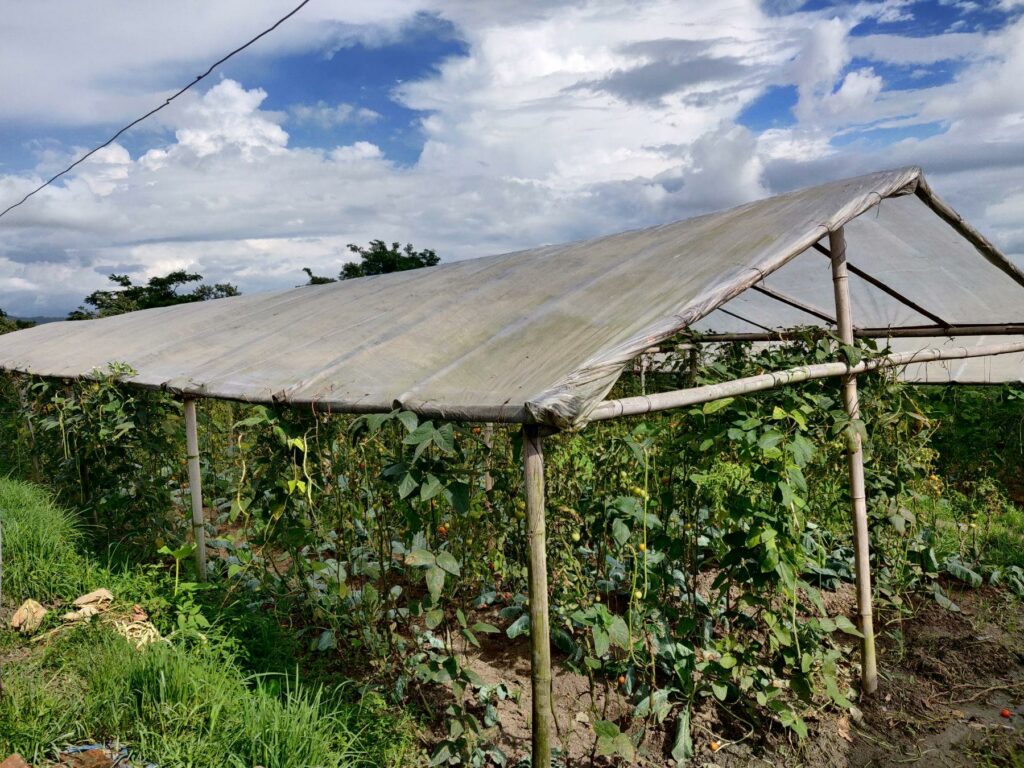
Continuing schooling during the pandemic
Maya is currently studying in Grade 8. She has become more open and expressive about how she feels and what she aspires to be due to our regular follow-ups and support. Due to the pandemic, Maya and her sisters’ education is also affected. They cannot afford four separate mobile phones to continue online classes but they are managing from one mobile phone gifted by Maya’s paternal uncle.
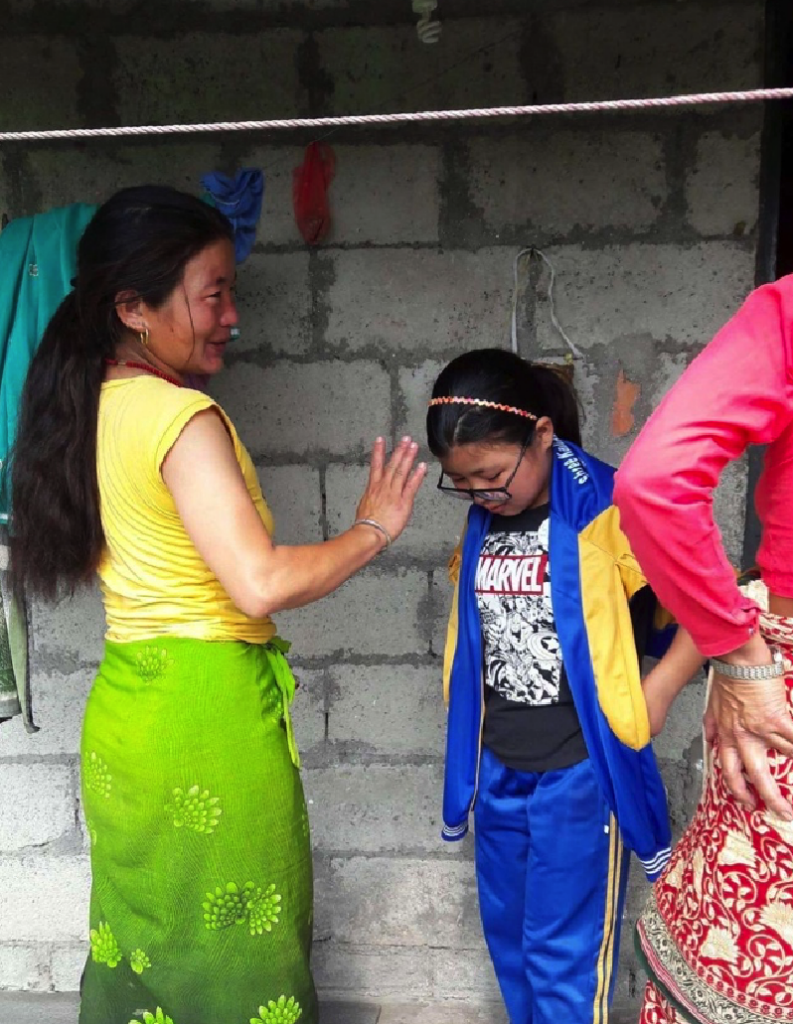
Buddhi Maya’s new-found courage
“Everyone makes mistakes,” Buddhi Maya says. ”My husband also made a mistake but he did not return even after our daughters pleaded with him in phone calls and messages. Now, my daughters tell me – you are both our father and mother and this has added so much courage inside me.”
Her face lights up when she talks about Reintegration Officers Bina and Tenzin. “This office is like my family,” she explains. ”I know you cannot support us with everything. I will do all I can. Care is not just about giving money. The support I have received from you all always makes my heart happy and gives me courage. I pray your office helps other needy families as well. Dhanyabaad!”
The post “We cried the whole night until dawn broke” appeared first on Hope and Homes for Children.
]]>The post We stand With Those Affected by COVID in India and Nepal appeared first on Hope and Homes for Children.
]]>The new strain of Covid hitting Asia is causing devastation and leaving countries in a state of emergency. In Nepal and India, the Covid situation is at its worst. We have worked with partners CINI in India and Forget Me Not in Nepal for several years, and are saddened to hear that some of our colleagues are infected or looking after family members suffering with the virus. We are extending our support to them during the pandemic.
We are working to support our partners through immediate risks, and to address longer term problems.
We know from our experience working in other countries across Europe and Africa, the majority of whom are still grappling with effects of the virus, that a crisis like this pandemic intensify the problems facing already vulnerable children and families. Disruption to essential services like education or healthcare can expose weaknesses in child protection systems, leaving more children at heightened risk of being locked away in abusive orphanages, ending up on the streets alone, or falling victim to child marriage and sex trafficking.
Here’s how we’re responding:
- We are ensuring that existing community child protection systems remain operational, to catch abuse or neglect, and support vulnerable children to stay safe
- We are identifying the most vulnerable children and linking them with support services and temporary care in families if needed
- We are continuing to provide direct emergency support to children and families at risk of separation, to ensure children can safely remain with their families
- We are working with local governments and NGOs to combine efforts and streamline services to reach more communities
- Alongside our partner in India, CINI, we’re setting up a Covid helpdesk so communities can receive health advice, guidance and access to various government support services
If you are an organisation interested in supporting our long-term work to ensure children grow up in families in India, please contact us at mysupport@hopeandhomes.org
If you want to support immediate crisis response efforts through our trusted partners CINI and Forget me Not, you can learn more and donate directly at:
India: Click here
Nepal: Click here
Learn more about our work in India
Learn more about our work in Nepal
The post We stand With Those Affected by COVID in India and Nepal appeared first on Hope and Homes for Children.
]]>